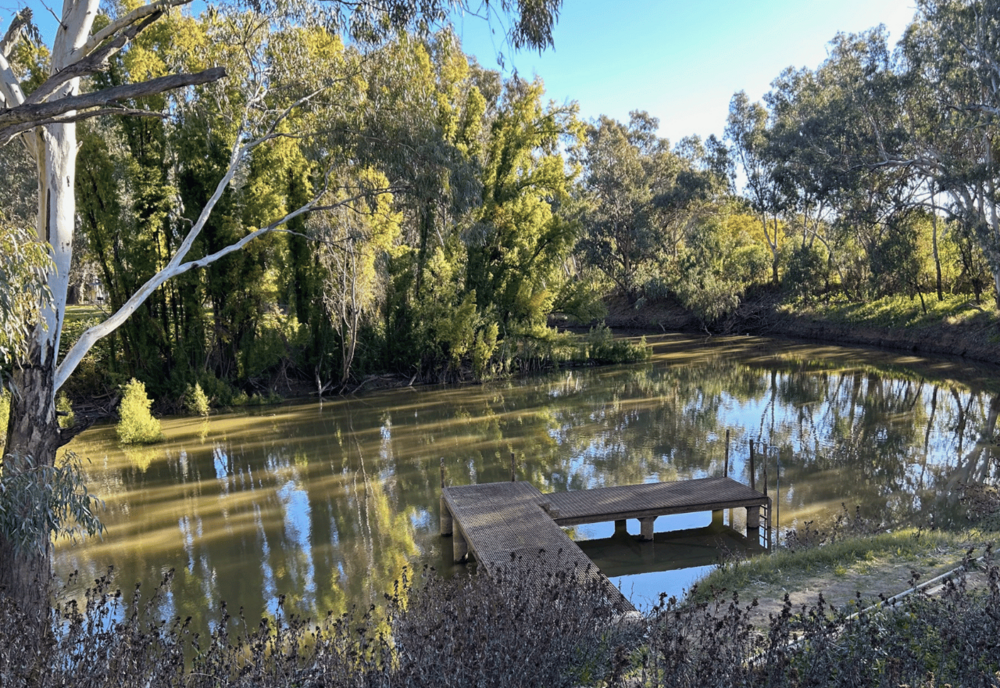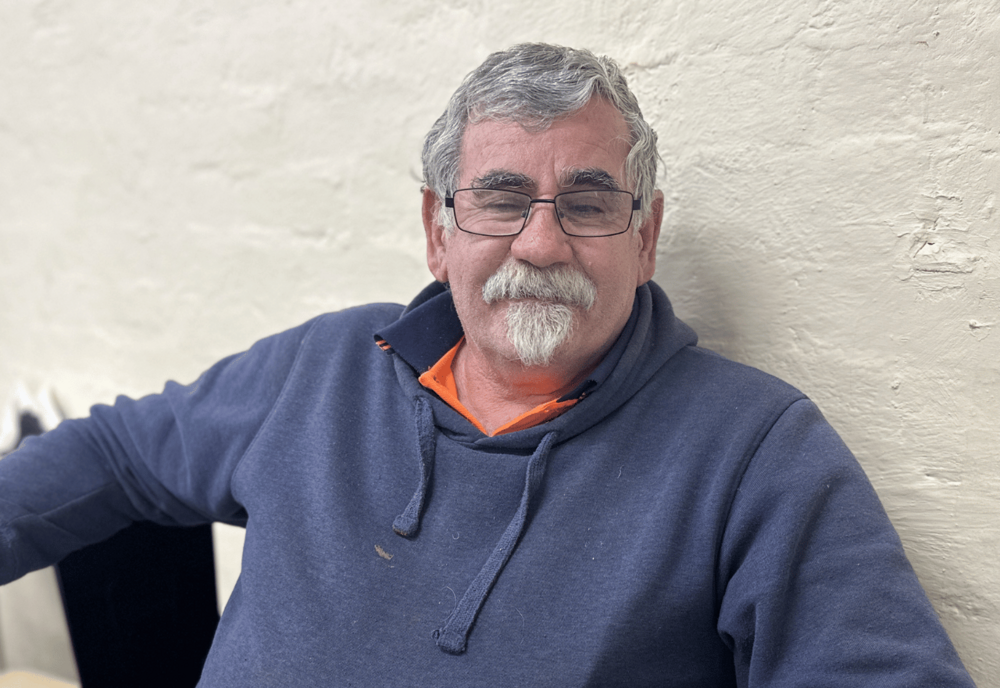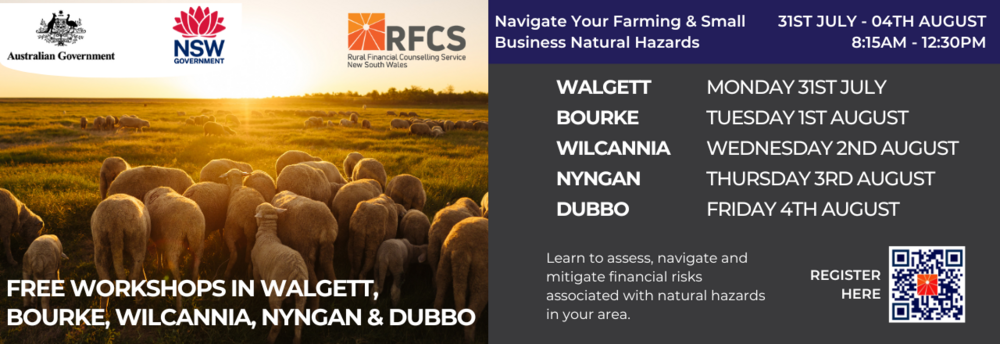Listening to locals for Basin Plan Inquiry
Ros Jackson
24 July 2023, 3:40 AM
 Productivity Commission's associate commissioner Chris Guest at Warren last week
Productivity Commission's associate commissioner Chris Guest at Warren last weekThe Productivity Commission has been on the road for over a month, holding public forums for its inquiry into the Murray-Darlin Basin Plan.
The 'roadshow' aims to give community members a chance to share their views on the implementation of the Basin Plan over the past five years and importantly, how it might be improved.
Associate Commissioner Chris Guest and his team started at Shepparton, Victoria back in early June and have been steadily making their way north ever since.
At the forum held in Warren on Wednesday 17 July, around ten members of the public were in attendance, representing interested parties including local government, irrigators, graziers, environmentalists, and First Nations peoples.
The Commissioner and his crew will be visiting 18 towns and so far attendance has varied widely with Deniliquin the highest where more than 100 people attended.
“There will be different perspectives down-stream from up stream," Mr Guest said.
"They are all a critical input to our thinking and an essential step in collecting evidence and obtaining a community reading. We haven’t come to any conclusions yet.”
Although the deliverables of the plan that are due by July 2024, progress has been slow. The inquiry did not start until May this year, so the timeframes needed to prepare and deliver the report are very tight.
“The evidence at the last review was that things were not on track and circumstances now mean that it is crunch time for delivery of the plan, with many things still not done,” he said.
“The key thing is that extensive community engagement is undertaken. We need to hear of your lived experience of the plan and listen to your ideas on what next.”
Mr Guest says there is an appetite by government to listen to what comes out of the Inquiry.
“The Treasurer Mr Chalmers has been very clear on this in the Terms of Reference for our Inquiry. It will be both backwards looking and forward looking, regarding next steps. There is also a Basin Plan II and a review of the water act coming up, so there’s a lot coming up in this space over the next few years.”
Consultation fatigue and frustration
A free exchange of ideas amongst the group followed with the first shot fired by a local irrigator, who addressed the elephant in the room.
“There is a level of frustration around the number of meetings we’ve been to for the Murray-Darling Basin Plan, and it has started to feel like a bit of a box ticking process,” he said, echoing the sentiments of many of those present. “We have come away from meetings confident that we had gotten our message across, however we’re sick of not seeing outcomes.”
A Warren irrigator with a family farm mentioned the challenges of dealing with the seemingly competing priorities of government departments. “Bureaucracy makes it difficult to be compliant and the frustration of those trying to run their businesses is palpable," the irrigator said.
The Commissioner conceded that consultation fatigue was an issue.
“I recognize deeply the frustration in asking community to come to meetings, to make submissions etcetera. You can be assured that I will record this type of feedback in my report as this is one of the recurring themes," Mr Guest said.
"This (report) is an opportunity to say things that could have real impact. Good ideas backed by evidence. We’ll focus on things that matter and put the time and effort into recommendations that are concrete and deliverable, that can be explained and understood. Having fewer, but more concrete recommendations, has more value.”
He conceded that water management has always been intensely political but says that this approach has some benefit.
“The Australian path is to adopt a political solution rather than litigious solution because the potential there is for a democratic process which allows more opportunity for input.”
“When the plan was first mooted, there was considerable anxiety over the details of that plan.
"Now there is mostly an acceptance that the Plan is part of the landscape and that there have been improvements to the environment in respect to the timings of water releases.
"The Environmental Water Holder is engaging more with the community. There’s been some benefit to at least some part of that reform.”
Local solutions better than bureaucracy
Another attendee called for at least some decisions to be brought back to a responsible, local water advisory committee.
“There will be debate sure, but that is better than bureaucracy. For example, the (government) decision to buy Toorale Station at Bourke. People who were present when the town flooded listened to local input regarding water releases, they took on local advice and the outcomes were bloody near perfect.”
Mr Guest conceded that "in principle, too much is top down when it should be bottom up, utilizing local knowledge, expertise and interest.”
“There’s legitimacy if something comes locally from the bottom up.
"So, the challenge is, practically, how do you design a system for doing that where you don’t lose the baby with the bathwater? How do we translate that principle into a solution?”
Mayor Quigley gave the example of a panel that was formed by the Warren Shire to manage the floods of 2022 and 2022.
“We had flood declared multiple times,” he said. “The Flood Mitigation Reference Panel included representatives from Water NSW and other relevant government departments, local government and private landholders.
“Consensus was reached, it was one of the best committees I’ve seen operated. Protocols went out the window and sensible solutions took over. A bottom-up approach has a great deal to offer when there is good will and consensus.”
He also referred to the concept of averages as being a blockage. “There is no such thing as an average, we are often very wet or very dry,” adding, “only in a flood situation would the Macquarie have an impact on the Barwon Darling.”
Mr Guest noted that a crisis can bring out the best in people. “The issue is however, in a non-crisis situation, how do you capture the kind of good will where you can routinely do things such as you do in flood or drought?”

The Macquarie River near Warren. IMAGE: Ros Jackson
Buybacks, over-recovery and compensating communities
The issue of water buy backs made during the drought and the over-recovery of water within the Macquarie Valley was a recurring theme of the meeting and the Commissioner asked the group for their views on the best way to correct the over recovery.
Warren Shire Mayor Milton Quigley said that over-recovered water should not be ‘socialised’ back into the system, but should be returned to the Macquarie Valley.
One attendee said he thought the Environmental Water Holder was the most aggressive user of water, more so than irrigators. “To see a full river going down to the environment after months of flooding is very disappointing.”
“Our valley had a massive over-recovery,” Warren Shire GM Gary Woodman. “The potential economic losses were estimated to be in the tens of millions of dollars per year. The funding we have received so far has been nowhere commensurate with this and the MDBP Recovery plan finished on 30 June.”
“We have a RAMSAR listed wetlands without good road access. We need real money and investment to come back in to compensate us,” Mr Woodman said. “We are always going to be an Agricultural community, but we would love visitors to be able to see the marshes. Investment into infrastructure would really help us to remain or become, economically viable.”
“We’ve have had three years of good farming, yet we don’t have the growth that other towns like Dubbo have had,” said one farmer. “So where to when the next drought comes?”
Climate change and the MDB Plan
Mr Guest said he had been given a remit by the government to look at several key issues including the impacts of climate change.
“Science is telling us that we are looking at changes to inflows and more frequent extreme climate events. This could drive changes in the plan itself," he said.
"One of the priority areas we must address in our report is, what we believe the climate change challenge is and what in the basin plan should be adjusted to reflect that. For example, triggers being built in that say if inflows fall to x then the plan needs to change in this way. An adaptive plan versus the certainty of a plan that doesn’t change. Clearly this would present a major challenge to how the plan would work.”
A number of attendees responded by saying that they felt prudent users of water would be disadvantaged by doing this, just as they had been during the last drought.
Mayor Quigley suggested that better use could be made of the water, at least in the Lower Macquarie.
“We’ve seen five times the capacity of Burrendong Dam flow past us during the recent flood events,” he said. “We should use flood water as a drought mitigation measure. Our existing infrastructure, Burrendong Dam, has 162% safe storage. We should be storing more water to drought proof ourselves instead of releasing it far below the safe storage level.”

Anthony Lees representated Trangie Local Aboriginal Land Council at the Warren forum. IMAGE: Sharon Bonthuys
Understanding First Nations interests
“We need practical advice on how to progress the interests and values of Aboriginal people and the Government is looking for concrete ways to do this," Mr Guest said.
"What is cultural water? How should it be delivered? We must come up with some answers on this and it’s not easy.
"One question is, should existing environmental water be used for First Nations or should there be additional water provided through buying existing entitlements up and transferring them to Aboriginal use."
He added that a suggestion had been made at one community meeting that half of all environmental water should go towards cultural purposes.
Anthony Lees, Chair of the Cultural and Heritage Committee of the Trangie Local Aboriginal Land Council said, “no matter what the intentions are to tailor flow for native fish, carp will benefit most.
"Ninety percent of the river biomass is Carp," Mr Lees said. "Consideration of the balance of cultural water and environmental water needs to take this into account.”
"First nations concerns have been swirling around with little progress made," Mr Guest said. "That’s why the funding available has been sitting there for five years. We need to understand what cultural water is and how it should be distributed. Just because it’s hard to do this, doesn’t mean we shouldn’t address it.”
"Strange position" created by our slow state plans
The topic of NSW’s Water Resource Plan Accreditation was raised towards the end of the meeting. NSW is lagging behind other states with the bulk of water plans submitted not yet accredited.
Mr Guest acknowledged that this "leaves NSW in a strange position as we can’t deliver on SELs (Sustainable Extraction Limits) if the plans are not accredited, and NSW has the bulk of the plans.”
What next?
The meeting ended with a consensus that although the process of continued consultation had been frustrating for community members who had invested a lot of time but had still not seen outcomes delivered, it was hoped that going forward, things would now start to shift.
The Productivity Commissioner’s roadshow will go through to early August as it continues through the northern basin. Although submissions are due by 31 July, the Commissioner emphasised that there is opportunity to request an extension.
His interim report is due to be released for public comment during the first week of October and the final report is due for submission to the Federal Treasurer by 19 December.
The Treasurer has twenty-five sitting days in which to table the report in parliament, so that should happen by the end of April 2024.




